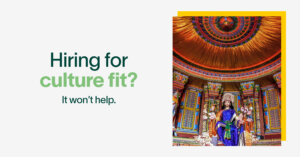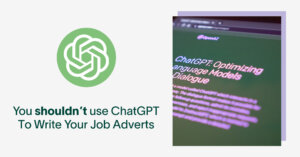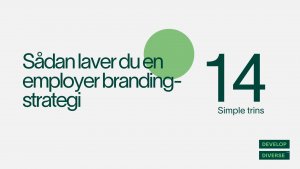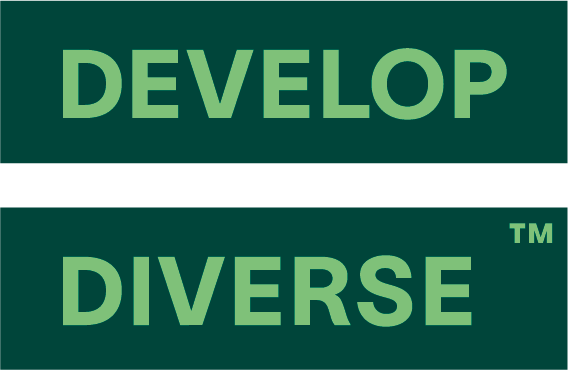Building a workplace that prioritizes a neurodiverse friendly environment is not just the right thing to do, it’s a strategic move that unlocks a wider talent pool and encourages a culture of innovation and growth.
So, how to build a neurodiverse workplace?
Build a neurodiverse workplace by creating inclusive hiring practices (clear job postings, multiple application formats). Train staff on neurodiversity & offer accommodations (quiet spaces, flexible work hours). Foster open communication & celebrate different working styles. Everyone benefits from a neuroinclusive environment!
In this article, we’ll explore the benefits of neurodiversity in the workplace, and provide a roadmap for creating a truly inclusive environment where everyone can thrive.
Understanding Neurodivergence in the Workplace
Now, we’ll explore the concept of neurodivergence and then explain how that is related to work –
What is Neurodiversity in the Workplace?
Neurodiversity refers to the natural variation in human brain function, which affects how people think, learn, and interact with the world. In the workplace, this means employees have different skills, communication styles, and sensory preferences. Some common neurodivergent conditions include ADHD, autism, dyslexia, and dyspraxia.
A workplace that embraces neurodiversity, supports different ways of thinking, learning, interacting, and perceiving the world. This can create a more inclusive and welcoming work environment that allows everyone to thrive. This can lead to benefits like increased innovation, problem-solving abilities, and a wider range of perspectives.
Why hire neurodiverse employees?
You should hire neurodiverse employees because they bring unique strengths and perspectives to the company. Study shows that, Neurological diversity can lead to more creativity in designs and innovation from stimulus design, potentially benefiting individuals and organizations (Harriet Axbey et al., 2023).
To be more specific, the value of neurodiverse employees lie in the unique abilities they bring. Such as:
Enhanced Problem-Solving: Individuals with conditions like autism spectrum disorder (ASD) often excel at identifying patterns and approaching problems from unconventional angles. This can lead to innovative solutions that traditional brainstorming might miss.
Boosted Creativity: Neurodiverse thinkers often possess a unique way of perceiving the world, fostering a wellspring of creative ideas. They can challenge assumptions and bring fresh perspectives to the table.
Exceptional Attention to Detail: Individuals with ADHD can demonstrate exceptional focus, allowing them to meticulously examine data and identify minor inconsistencies. This makes them invaluable assets in quality control, research, and data analysis roles.
By embracing neurodiversity, you tap into a pool of talented individuals with a wider range of cognitive strengths. This can lead to a more innovative, problem-solving oriented, and successful team.
But we can’t just stop at hiring neurodiverse people. We should aim for reasonable adjustments for neurodiverse people.
Is reasonable adjustment necessary in workplaces?
In the workplace, reasonable adjustment matters, because workplace norms have historically been built by and for neurotypical people. For example, an open-plan office might seem like it fosters collaboration, but to a neurodivergent person, it may be overstimulating, noisy, and anxiety-inducing.
This can lead to worse outcomes, both in the job selection process, and how neurodivergent people perform and are perceived at work:
- A 2020 study found that people on the autism spectrum are rated less favourably than neurotypical people in job interviews.
- A 2019 study analysing the experiences of employees with Tourette Syndrome found that in the job interview process, candidates felt that they were considered less capable of performing the role. When in the role, interviewees reported feeling unsupported in a way that helped them keep their job.
- A 2022 study found that employees with dyslexia are more likely to suffer from burnout and mental exhaustion when they don’t have access to appropriate accommodations at work.
Building a neurodiverse workplace
Building a neurodiverse workplace comes with a few major strategies. Many professionals ask, how to promote neurodiversity in workplace?
Building a neurodiverse workplace or promoting neurodiversity in workplace involves educating staff, using inclusive hiring practices, and offering flexible work arrangements. Clear communication with written instructions, avoiding jargon, and using multiple channels (text, speech, visuals) is essential. Respect sensitivities with noise-cancellation, quiet spaces, and adjustable lighting. Finally, create a supportive environment with mentorship and celebrate neurodiverse strengths. These steps unlock the full potential of a diverse team.
How to hire neurodiverse talent?
When hiring neurodivergent talent, it’s important to make sure each stage of your recruitment process focuses on clarity, specificity, and communication.
Designing application process for neurodiverse candidates
“In the earliest stages of someone applying to your company, every candidate will experience a series of touchpoints with your organisation,” says Dr. Poornima Luthra, associate professor at Copenhagen Business School, and founder of Talented Consultancy APS. “Creating a more inclusive experience for neurodivergent people means that you need to focus on how those interactions take place.”
In the hiring process, Dr. Poornima suggests organisations focus on making some inclusive changes that won’t just make things more inclusive for neurodivergent folks — but everyone:
- Anonymise CVs and applications by default.
- Simplify your application form to include only the questions you need to evaluate the competencies needed for the job.
- Make sure instructions are clear and explicit for interview tasks.
- Communicate what to expect at the interview ahead of time, including the schedule, people the candidate will meet, and what questions they’ll be asked.
For the interview, Dr. Poornima suggests a change of tack to make things more neurodivergent-friendly.
“In a traditional interview process, those who are more outspoken or come across as being more confident or articulate tend to do better,” Dr. Poornima says. “The job interview process requires you to engage in communication — not just verbal, but also your body language. You have to shake the interviewer’s hand and maintain eye contact. Neurodivergent candidates may really struggle with that. For this you have to make neurodiversity interview adjustments.
“One approach I’ve seen that I love involves de-emphasising that need for eye contact. You can introduce a table full of Legos, for example, where everyone at the table is working on building something and having a more relaxed conversation without the need for prolonged eye contact. This also benefits those who are more introverted.
“As an employer, you’re more likely to get a feel for a candidate by creating a positive, relaxed experience — neurodivergent or not.”
Scaling inclusive practices for neurodivergent employees beyond the recruitment process
Remember that inclusion doesn’t stop at your hiring process — it also needs to filter into your whole organisation, including its processes and infrastructure. As such, you’ll need to think about how you can continue providing the right conditions and environment for your neurodivergent candidate to thrive once you’ve hired them.
On a practical level, this could include introducing flexible working policies to enable neurodivergent folks to work when they feel best, creating quiet areas in your office, or writing an inclusive communication policy.
We can help with the last one. Develop Diverse is an inclusive communication platform that helps organisations scale more mindful communication in their recruitment process and beyond. Find out more about creating a more inclusive recruitment process for neurodivergent people by booking a demo with one of our brilliant team members.





